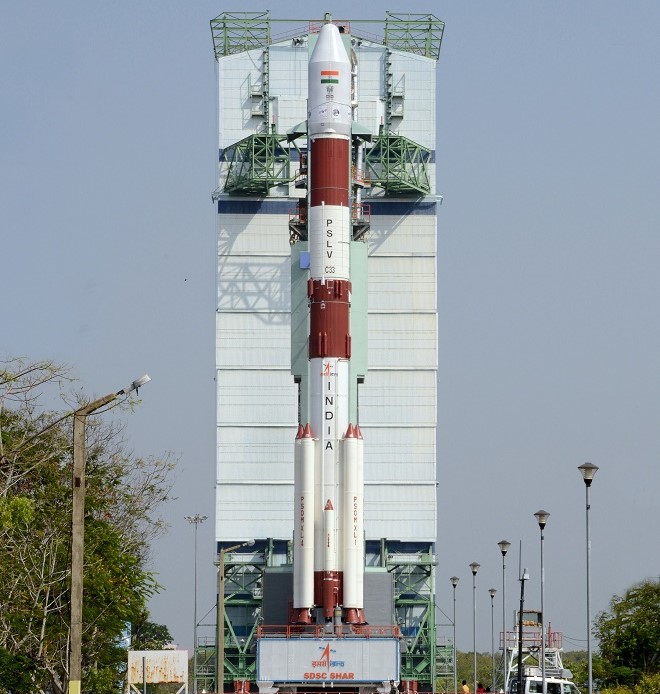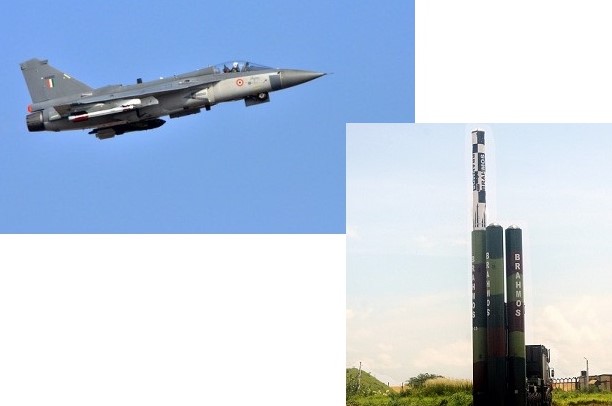
Fully integrated PLSV-C33 with IRNSS-1G at First Launch Pad, SHAR Sriharikota. Photo: ISRO.
CHENNAI (PTI): India will move closer to having its own navigation satellite system when the seventh and last in the series of the constellation of Regional Navigation Satellite System, IRNSS-1G on board PSLV-C33, will be launched from the spaceport of Sriharikota in Andhra Pradesh on Thursday.
The Indian Regional Navigation Satellite System comprising seven satellites would be able to provide navigation system with much better accuracy and targeted position.
While four satellites would be sufficient to start operations of the IRNSS system, the remaining three would make it "more accurate and efficient".
ISRO had launched the sixth navigation satellite IRNSS-1F on March 10, the other five being IRNSS-1A on July 1, 2013, IRNSS-1B (April 4, 2014), IRNSS-1C (October 16, 2014), IRNSS-1D (March 28, 2015) and IRNSS-1E (January 20, 2016).
According to ISRO officials total cost of all the seven satellites was Rs 1,420 crore.
Soon after the Mission Readiness Review Committee and the Launch Authorisation Board gave its approval on Monday, the 51.30 hour countdown for the launch of IRNSS-1G began at 09.20 hours yesterday and was "progressing smoothly" for the launch scheduled for Thursday from the first launch pad at Sriharikota by 12.50pm.
"Countdown operations are progressing normally and everything is ready for the launch (scheduled for Thursday)", ISRO Chairman A S Kiran Kumar told reporters at airport.
The PSLV-C33, carrying IRNSS-1G, in its 35th flight, would be the XL variant that was used during launch of Mars Orbiter Mission, Chandrayaan-1, ASTROSAT besides the six IRNSS satellites.
The 44.4 metre tall IRNSS-1G has a lift-off mass of 1,425 kg and would be launched in sub-Geosynchronous Transfer Orbit (sub GTO). It has a 12 year mission life.
With the operationalisation of six satellites, India has demonstrated the system's targeted position accuracy which is much better than 20 metres over 24 hours of the day.
With the launch and operationalisation of IRNSS-1G, the seventh in the constellation, the completion of IRNSS constellation will be achieved, ISRO said.
 Previous Article
Previous Article Next Article
Next Article












The Indian Air Force, in its flight trials evaluation report submitted before the Defence Ministry l..
view articleAn insight into the Medium Multi-Role Combat Aircraft competition...
view articleSky enthusiasts can now spot the International Space Station (ISS) commanded by Indian-American astr..
view article